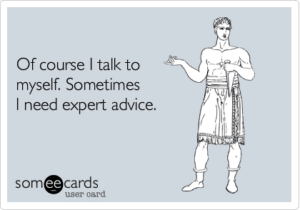The world is changing fast, and in the digital scenario that we live in nowadays, growing beyond national limits can be a good idea to reach more people and deliver not only your content globally, but also your solutions. As a result the impacts of a global brand can be positive not only for businesses but also for many other people around the world.
Creating a Marketing Strategy is not an easy task. It requires a lot of research, planning and efforts to make a brand stand out to the audience and reach its business goals. However, when we are talking about global marketing, it can get even more difficult.
Rock Content joined forces with Hubspot and Lokalise and launched the 2023 Global Marketing Playbook, a full guide to help professionals and companies create strategies to go global.
We went through the whole guide and brought 9 major insights according to the chapters of the ebook. Here you go:
Preparation
Going global requires lots of focus and research. It is important to understand the current scenario in the market you plan to get into. Is your solution going to be a good fit for that audience? Is there any room for growth there? Do you have the budget, knowledge, tools and personnel needed to succeed with this expansion?
To answer these questions, a company needs to evaluate not only its internal resources like budget and workforce, but also external factors, such as cultural, economic and competitive aspects. These characteristics will play an important role when determining where to go.
With these questions answered, it is time to define where you want the business to go and how to make a way to get there.
Strategy
In order to get started with the strategy, it is worthwhile guiding this stage following 4 steps, that can be similar to traditional marketing, but slightly different, to support a global strategy: planning, producing, promotion and perfection. You can dive deeper into each of these steps inside the full ebook.
The whole team needs to be aligned to drive the entire strategy towards success. However, each region needs to have its specificity, since its persona, linguistic, historical and cultural aspects are different. Besides these differences, keeping the team engaged, collaborative and efficient is a must, since the objective here is to reach the business goal.
Talking about business goals, each company will have its own. The priorities may change according to the scenario and regions. Some examples are: customer retention, growth, profitability, market share and so on… for each of these, you can think of different content formats and depth of content.
If the objective is customer retention, for example, investing in user interface, customer and advocacy marketing can be a good starting point.
To make it all happen, the team needs to be ready and available not only to plan a content strategy but also to create the assets needed. It can be challenging in terms of workforce, so this is where tools that are globally available come in, and can help you work more efficiently. A good example is WriterAccess, a content creation platform that connects businesses with expert freelancers to create high quality content.
Planning
Having the strategy set up, it is time to create long-term objectives and to break into smaller SMART goals. Where do you want your business to be? What are the metrics you need to crunch in order to get there? A nice way to do it is by making an inverted funnel analysis: If we need to have $100,000 per month, we need to have X sales opportunities, that needs to have X MQLs coming from X leads that converted from X visits. This is just an example.
Another way to do so is by breaking these numbers down. Define SMART (specific, measurable, attainable, relevant and timely) goals. You can create it for each quarter/month and also define these goals according to each region. See more examples in the Playbook.
Do not forget to count on planning tools, like calendars, spreadsheets and other resources that will help you build a skeleton and keep track of your campaigns.
People
Assemble your team: keep in mind that you are pointing your communications towards another location. This may bring different languages but also different ways of positioning and transmitting the same message. In this case, having someone from that location to create and/or revise your content is really important.
Another important point is about being human-centered. Despite the need for scaling the strategy, remember that you are communicating to people. Create connections with them. Have a personalized approach to the different audiences you are communicating with, since the personas have different desires.
Process
As mentioned before, a skeleton of your plan can guide the marketing team to take certain steps. It is also important to document the process, whereby the whole team can access who is responsible for what and when.
For example: who is responsible for each creation stage? What are the channels that you publish in? What are the steps to create and publish content? What are the tools that you use?
Localization
When providing global campaigns it is crucial to share the same message globally, whatever language is being used. In this case, make sure that you are delivering the right message for all the regions, and protecting your brand from misunderstanding.
Know the difference between translation, localization and transcreation. The first one is broadly known as just converting it into another language. Localization takes into account the specific characteristics of a location, not only translating the words. Transcreation is a mix of both, where you can translate while considering the regional aspects of the content.
If you want to have a deeper understanding on this, check out the full ebook.
Technology
At this stage, have a tech audit of the tools that your business already uses. Have you been using them all? Will they support your global strategy?
If you find tools that have not been used or that may not support a global strategy, consider changing and contracting new technologies that will help your business succeed. Here are five considerations that the playbook instigates marketers to make when defining their tools:
- What format(s) is the content in?
- In which systems is content created, stored, and published?
- Are the systems connected?
- How often is content updated?
- What processes can we automate?
A perfect example of technology that can be used to help global marketing teams scale their productivity is WriterAccess by Rock Content. You can find the perfect freelancer to create many types of content and integrate with multiple platforms that will bring much more efficiency to your routine.
Management
Managing a global team can contribute a lot to cultural exchange but this can also mean some challenges, especially for the remote environment.
Empower your local teams, understand their pain points and challenges. Sometimes, the cultural differences, time zones, and geographical distances may impact on their routine, so being an empathic manager is really important.
People who live and have the experience of working with a specific market have a lot to share and contribute to the global strategy. So listen to them as they will probably bring great local insights.
Mastery
Now that you have seen the basic insights about the whole strategy, from beginning to the end, it is time to go beyond and master business globalization. Here are five tips that you can see in more detail by downloading the Global Marketing Playbook:
- Lead your company to global marketing success.
- Help the rest of the business globalize.
- Embrace agile marketing globally.
- Create your next generation of global marketing leaders.
- Share what you learn with the world.
Have these five points as the next steps that will take your business to the next level of expansion and success!
This was just a quick overview of what you can find in the Global Marketing Playbook. Make sure to download the full document and dive deeper into the complete guide. You will definitely get many other insights that will help your business grow!
Do you want to continue to be updated with Marketing best practices? I strongly suggest that you subscribe to The Beat, Rock Content’s interactive newsletter. There, you’ll find all the trends that matter in the Digital Marketing landscape. See you there!







